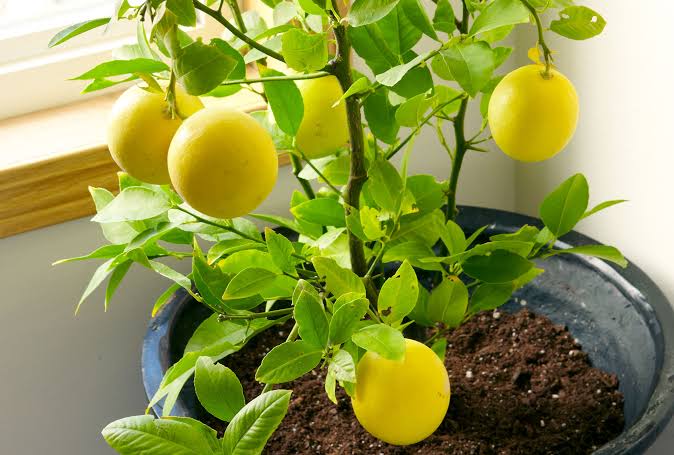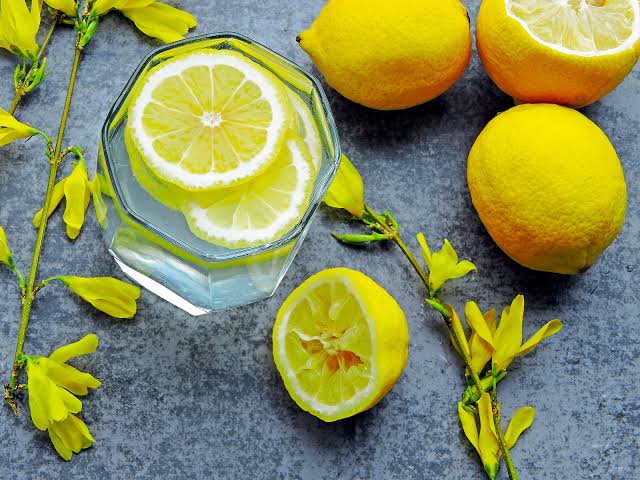Lemon is a bright, yellow fruit that grows on trees. It is known for its sour taste and is used in many different ways. People all around the world enjoy lemons in various dishes and drinks.
When you look at a lemon, you’ll notice its vibrant color and a slightly bumpy texture on the peel. The inside of a lemon is juicy and divided into segments, each containing tiny seeds. Despite its small size, the flavor of a lemon is powerful and tangy.
One of the most common uses of lemons is in cooking. The sour juice adds a zesty kick to both sweet and savory dishes. From salad dressings to desserts, lemons play a versatile role in enhancing the taste of many recipes. Lemon zest, the outer part of the peel, is often used to add a burst of citrus flavor to dishes.
Not only is lemon a culinary delight, but it also offers health benefits. Lemons are a rich source of vitamin C, which is essential for a healthy immune system. Drinking lemon water is a popular way to incorporate this vitamin into one’s diet and may also aid in digestion.
Beyond the kitchen, lemons have found their way into various household uses. The acidity of lemon juice makes it an effective natural cleaner. Many people use it to remove stains, eliminate odors, and even polish surfaces. The fresh scent of lemons also contributes to a pleasant atmosphere in homes.
In addition to its culinary and practical uses, lemons have cultural significance. They are often associated with freshness and cleanliness. The saying “when life gives you lemons, make lemonade” encourages a positive attitude towards challenges, emphasizing the idea of turning something sour into something sweet.
Lemon trees are cultivated in different parts of the world, and the fruit is enjoyed globally. The demand for lemons continues to rise, thanks to their versatility and refreshing taste. Whether used in a refreshing beverage on a hot day or as a key ingredient in a delicious meal, lemons have rightfully earned their place in the hearts and kitchens of people worldwide.
Read Also: General Introduction to Pig Management
How to Grow and Care for Lemons

Lemon trees are a delightful addition to any garden, offering fresh and tangy fruits as well as a touch of greenery. Whether you’re a seasoned gardener or just starting out, here’s a simple guide to help you grow and care for your lemon tree.
1. Choosing the Right Variety: Select a lemon tree variety that suits your climate. Meyer lemons are popular for their sweeter taste, while Eureka and Lisbon lemons are more common varieties. Make sure to choose a healthy sapling from a reputable nursery.
2. Planting:
Location: Choose a sunny spot with well-draining soil. Lemon trees thrive in full sunlight.
Soil Preparation: Ensure the soil is rich in organic matter and well-draining. Sandy loam or loamy soil is ideal.
Planting Depth: Plant the sapling at the same depth as it was in its nursery container. Provide enough space between multiple lemon trees for proper air circulation.
3. Watering:
Regular Watering: Lemon trees need regular watering, especially during dry spells. Keep the soil consistently moist but not waterlogged.
Deep Watering: Water deeply, allowing the water to reach the root system. Shallow watering can lead to shallow root growth.
4. Fertilizing:
Balanced Fertilizer: Feed your lemon tree with a balanced fertilizer during the growing season. Apply fertilizer three times a year – in spring, summer, and early fall.
Micro-Nutrients: Lemon trees benefit from micronutrients like zinc and iron. Consider adding a micronutrient spray to prevent deficiencies.
5. Pruning:
Remove Dead Wood: Prune dead or damaged branches regularly. This helps maintain the overall health of the tree.
Shape the Tree: Shape the tree for better air circulation and sunlight penetration. Pruning also helps control the size of the tree.
6. Pest and Disease Management:
Inspect Regularly: Keep an eye out for pests like aphids and scale insects. Early detection helps in effective pest control.
Natural Remedies: Use neem oil or insecticidal soap for controlling pests. Copper fungicides can help prevent fungal diseases.
7. Harvesting:
Patience is Key: Lemons typically take several months to ripen. Be patient and wait until they reach the desired size and color.
Gentle Harvesting: Harvest lemons by gently twisting them from the tree. Avoid pulling, as this can damage the branch.
8. Winter Care:
Protect from Frost: If you live in a colder climate, protect your lemon tree from frost by covering it with burlap or bringing it indoors during extreme cold spells.
By following these simple guidelines, you can enjoy the fresh, vibrant taste of homegrown lemons while nurturing a healthy and fruitful lemon tree in your garden.
Read Also: Pig Diseases and Control/Prevention Methods
Uses of Lemons

The Versatile Uses of Lemons include:
1. Culinary Delight: Lemons add a zesty flavor to a myriad of dishes, both sweet and savory. From salad dressings to marinades, lemon juice enhances the taste and brightens up the flavors.
2. Refreshing Beverages: Lemonade, a classic and refreshing drink, is made by combining lemon juice, water, and sweetener. Lemon slices also make a delightful addition to water, tea, or cocktails.
3. Baking and Desserts: Lemon zest and juice contribute a citrusy kick to cakes, cookies, and desserts. Lemon curd, made from lemon juice, sugar, eggs, and butter, is a delicious spread or filling.
4. Preserving Foods: The acidity of lemons makes them ideal for preserving fruits and preventing them from browning. A splash of lemon juice on sliced apples or avocados keeps them fresh.
5. Flavoring Seafood: Lemon pairs exceptionally well with seafood. Whether squeezing fresh lemon over grilled fish or using it in a seafood marinade, it adds brightness to the dish.
6. Salad Enhancer: Lemon vinaigrette is a popular dressing for salads. A simple mixture of lemon juice, olive oil, salt, and pepper can elevate the taste of any salad.
7. Home Cleaning: The natural acidity of lemons makes them effective for cleaning purposes. Lemon juice can be used to remove stains, disinfect surfaces, and even deodorize the home.
8. Aromatherapy: The fresh and citrusy scent of lemons is often used in aromatherapy. Lemon essential oil is known for its uplifting and invigorating properties.
9. Health Tonic: Lemon water is a popular health drink. It is believed to aid digestion, boost the immune system, and promote hydration.
10. Natural Beauty Treatments: Lemon juice is used in DIY beauty treatments. It can lighten skin, reduce acne scars, and act as a natural exfoliant when combined with other ingredients.
11. Household Deodorizer: Lemon peels can be added to garbage disposals or simmered on the stove with spices to naturally freshen the air in the home.
12. Cocktail Garnish: Lemon twists or slices often serve as garnishes for cocktails, adding a burst of citrus aroma and flavor.
13. Natural Insect Repellent: The scent of lemon is known to repel certain insects. Rubbing lemon peels on skin or placing them around the house can help deter pests.
From the kitchen to household cleaning, beauty treatments, and beyond, lemons prove to be a versatile fruit with a wide range of uses that extend far beyond their delicious taste.
Benefits of Lemon
Here the Health Benefits of Lemons:
1. Rich in Vitamin C: Lemons are a powerhouse of vitamin C, a crucial antioxidant that supports the immune system, helps the body absorb iron, and promotes healthy skin.
2. Aids Digestion: The acidity in lemon juice can stimulate the production of digestive juices, supporting digestion and helping to alleviate indigestion and bloating.
3. Hydration Boost: Lemon water is a refreshing way to stay hydrated, providing a burst of flavor that may encourage people to drink more water throughout the day.
4. Alkalizing Properties: Despite their acidic taste, lemons have an alkalizing effect on the body, which may help balance the body’s pH levels.
5. Heart Health: The fiber and plant compounds in lemons may contribute to heart health by reducing risk factors like high blood pressure and cholesterol levels.
6. Weight Management: Some studies suggest that the pectin fiber in lemons may help with weight loss by promoting a feeling of fullness.
7. Skin Care: Vitamin C in lemons plays a vital role in collagen synthesis, promoting skin elasticity and reducing the appearance of wrinkles. Applying lemon juice topically may also help lighten dark spots.
8. Kidney Stone Prevention: The citric acid in lemons may help prevent the formation of kidney stones by increasing urine citrate and preventing calcium crystals from forming.
9. Anti-Inflammatory Properties: Compounds in lemons, such as limonene and flavonoids, exhibit anti-inflammatory properties that may contribute to reducing inflammation in the body.
10. Boosts Iron Absorption: The vitamin C in lemons enhances the absorption of non-heme iron from plant-based foods, making it beneficial for individuals with iron-deficiency anemia.
11. Cancer Prevention: Some studies suggest that the antioxidants in lemons, including limonene, may have potential anti-cancer properties, although more research is needed.
12. Respiratory Health: Inhaling the aroma of lemons or using lemon essential oil may help alleviate symptoms of respiratory conditions and promote clear breathing.
13. Antibacterial and Antiviral: The citric acid in lemons possesses antibacterial and antiviral properties, which may help in fighting off infections.
It’s important to note that while lemons offer various health benefits, moderation is key. Excessive consumption of acidic foods, including lemons, may lead to dental erosion. Incorporating lemons into a balanced diet can contribute to overall health and well-being. As with any dietary changes, individuals with specific health concerns should consult with a healthcare professional.
Read Also: Environmental Management Tips for Sustainable Living

